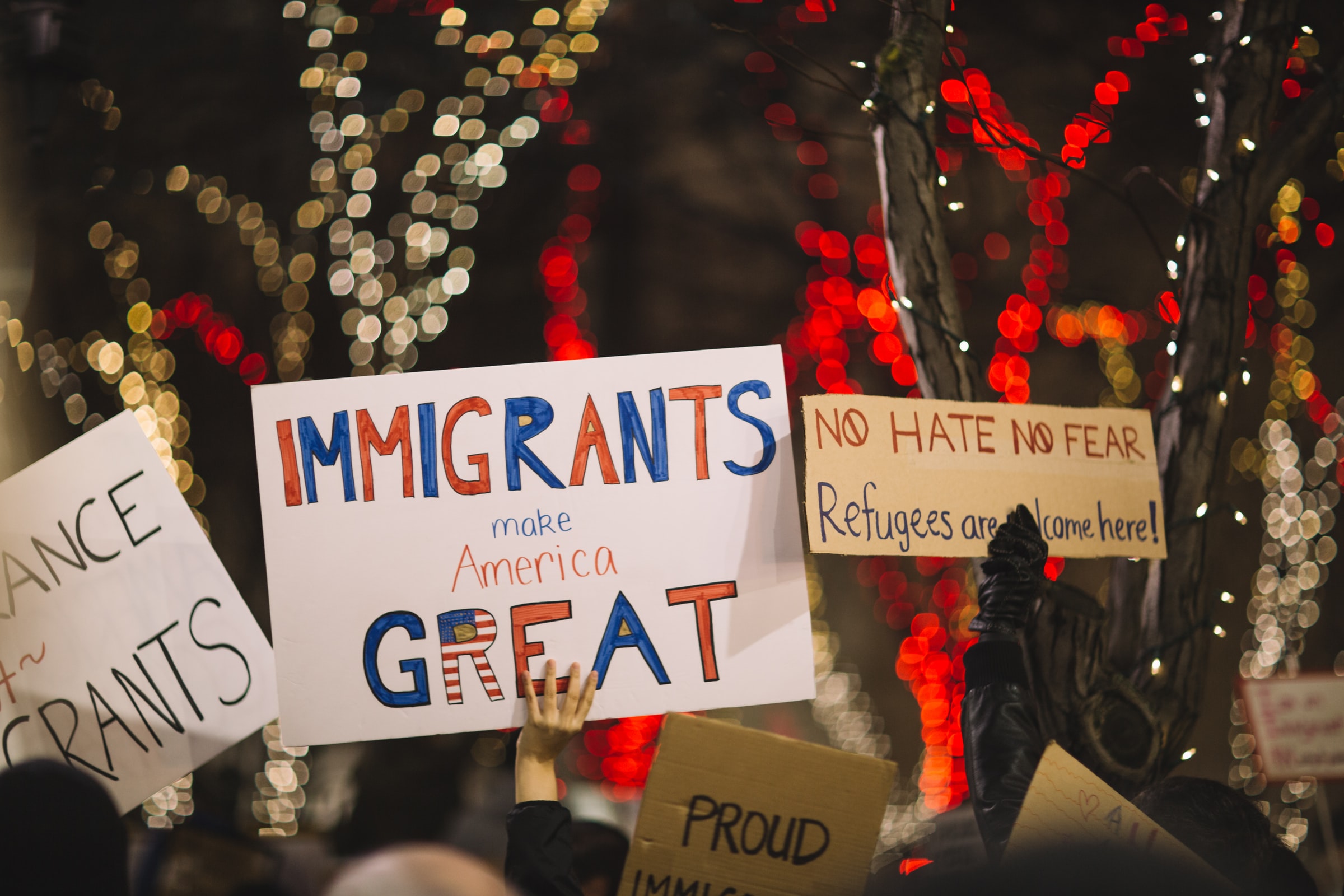
Story
Saving the “Soul of the Nation”
Since the day record numbers of Americans elected Joe Biden as their president, historians have been writing the record of the Trump Era and the fractures his presidency exposed—and how Americans charted a path forward.
Editor’s Note: How will 2020 go down in history? In the Hindsight 20/20 project from The Colorado Magazine, twenty of today's most insightful historians and thought leaders imagine themselves in 2120, looking back on 2020 and sharing their visions of how that year will stand the test of time.
The “soul of the nation” was at stake in the 2020 presidential election, said Joe Biden. Well, he was right. What was on the line was nothing less than America’s identity as a democratic nation. In a nail-biting election, the nation of second chances got a second chance to reaffirm its commitment to democracy. In electing Biden, the American people implicitly rejected Donald Trump’s authoritarianism and, in so doing, saved the American project for posterity.
Many thought that once Trump became president, he would act like one. Instead, he governed as a self-aggrandizing monarch. He demanded—and he got—unquestioned loyalty from subordinates and sycophancy from Republican Party members, much to the delight of the country’s adversaries and the dismay of its allies. Scholars, pundits, and former officials have documented in detail Trump’s betrayals and the existential threat he posed to American democracy. With this evidence in hand, historians in 2120 tend to rate Trump as the worst president in modern American history.
The Trump presidency brought to light as never before the problems of the country’s political process. Among them was the flawed way we elected our president. Elections are our means of transferring power peacefully and what distinguishes America more than anything else from authoritarian nations. Eliminating the Electoral College and replacing it with the popular vote has made the process more equitable and now reflects the will of the majority. This change took many years of assiduous effort, as it required amending the US Constitution. Indeed, it took as long as it did to pass the 19th Amendment, which finally gave women the right to vote after suffragists and their allies worked from 1848 to 1920 to secure its passage.

Throughout the Trump presidency, people around the US and the world gathered to make their voices heard on many different issues including the administration's controversial immigration policies.
Trump’s presidency also raised serious questions about our people’s commitment to the nation’s ideals as embodied in its founding documents. It is our common commitment to such ideals as racial equality, social justice, and political empowerment that makes us Americans. For much of the world, America’s liberal immigration policy encapsulated those ideals. As a “Nation of Immigrants,” America derived its strength from diversity and inclusivity. Trump sought to change America’s identity, promoting uniformity and exclusivity with the aim of attaining white supremacy. Immigration was his signature campaign issue, and upon assuming the presidency he implemented a draconian policy to exclude immigrants from certain Middle Eastern, Latin American, and African countries. He used inhumane means to carry it out—separating children from their parents to deter immigrants from trying to enter the country and proposing to deport immigrants who had come as children. Fortunately, the Biden presidency replaced this policy with a liberal one that redounded to the benefit of the economy and society.
Trump’s defeat was a historic moment if ever there was one. Americans did the one thing they could collectively do to stop Trump from carrying out his authoritarian agenda: they voted, and in unprecedented numbers. Over two-thirds of eligible voters cast their ballots, the most since 1900, and in so doing they made history. In every election since, the goal has been to emulate that singular achievement in the nation’s storied past.
Dr. Wei wrote this essay before the events of January 6 and the assault on the US Capitol.
More from the Hindsight 20/20 project in The Colorado Magazine
The Year of the Ethicist When the Covid-19 pandemic exposed public health shortcomings and deadly racial inequities, it sparked a new public conversation about our priorities. The hard days and difficult decisions of 2020 propelled new ways of thinking about the health and wellbeing of our whole society, including what a “right to health care” really means.
American Studies 102: Survey of 21st Century US “Race” Relations A twenty-second-century American Studies professor looks back at the antiquated notion of “race” that prevailed in 2020, when high-profile incidents of anti-Blackness sparked the War of Reckoning and, ultimately, the Great Reconciliation.
Our Cultural Traditions Served to Heal Us Cultural practices tell Indigenous Peoples that concern and care for each other are how we understand the concept of “All My Relations.” These humble practices, however, were turned against us as the coronavirus preyed upon and spread among those gathered at social events and at ceremony. But we are resilient!
